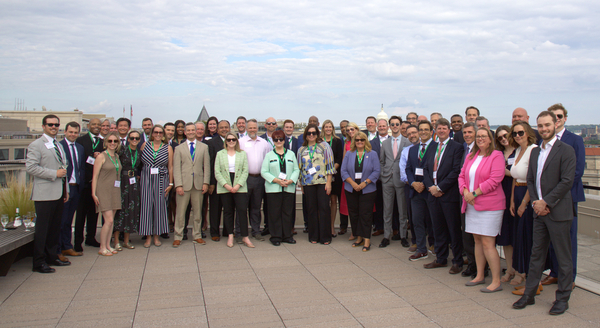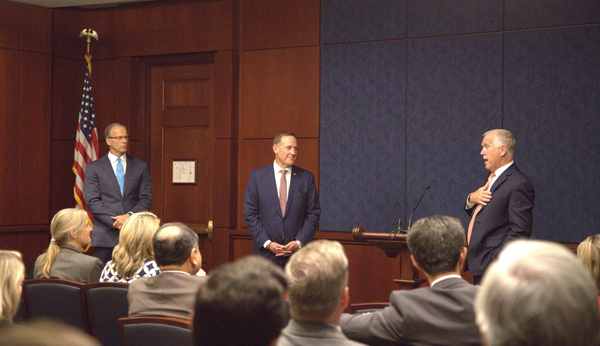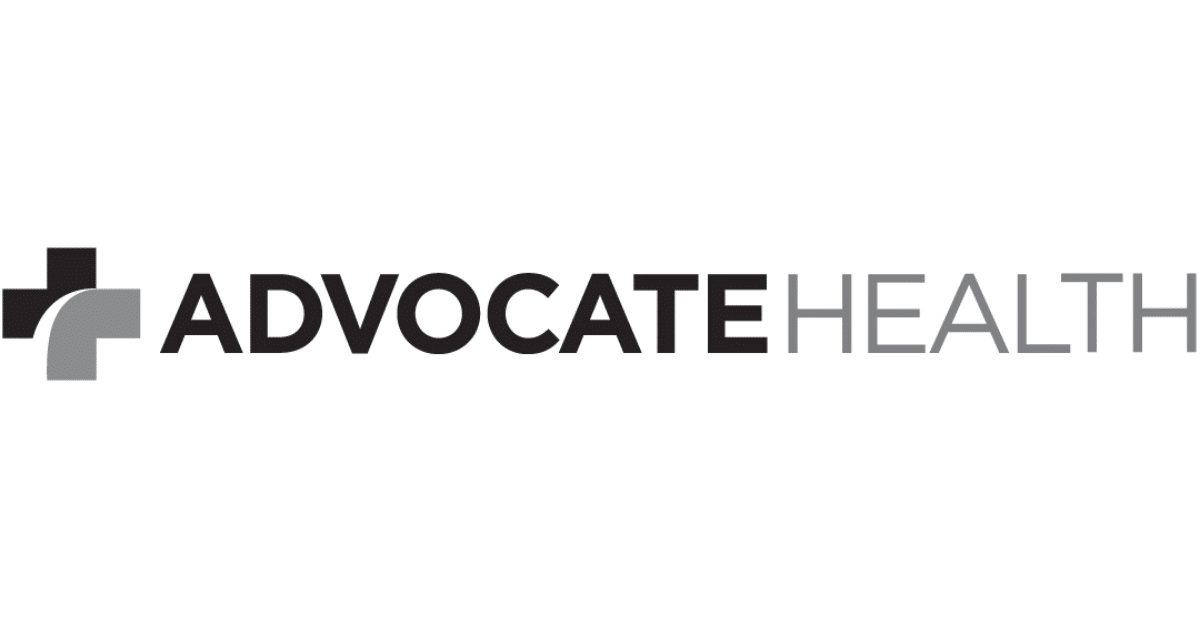The Charlotte Regional Business Alliance hosted its annual Washington, DC Fly-In this week. During the fly-in, the CLT Alliance amplifies its federal legislative priorities with policymakers. Investors have the opportunity to build relationships with Members of Congress, their staffs, and other policymakers.
With a focus on economic development, infrastructure, and tech policy, CLT Alliance investors heard from thought leaders and elected officials on those topics and other priorities in the nation’s capital.
Ambassador Kristen Silverberg, president and COO of the Business Roundtable offered keynote remarks on day one of the trip. Silverberg gave her perspective on trade, regulation, workforce development, artificial intelligence, and tax policy. Like many speakers throughout the trip, Silverberg noted the current tax debate is multi-faceted, with many competing interests. She shared that the lapse in immediate expensing of R&D costs, one item being considered in Congress, has led to a marked decrease in R&D spending.
As the CLT Alliance updates its legislative agenda for 2025, the advocacy team will look to the Business Roundtable, the U.S. Chamber, and other partners for support on federal priorities.
The U.S. Chamber offered two speakers during the fly-in. U.S. Chamber Chief Economist Curtis Dubay shared his views on the economy broadly and the impact of inflation. With inflation still too high at around 3.5%, he shared that the Federal Reserve does not anticipate inflation falling to 2.0% until 2026.
Dubay also shared that the housing market nationally is millions of units short in meeting demand. On office conversions as a housing solution, he said that permitting and zoning reforms are needed in communities across the country. He cautioned that the layouts of office buildings create practical challenges to be converted entirely to housing. Mixed use developments might be a more palatable option.
Rick Wade, Senior Vice President of Strategic Alliances and Outreach, with the U.S. Chamber talked about the Chamber’s engagement with business schools across the country. The Chamber’s goal is to meet with business students, preparing the next generation of advocates for free enterprise. Wade also discussed the Chamber’s work to improve second chance hiring to get more people back into the workforce. Attendees demonstrated interest in that work and the Chamber’s forthcoming Business Connect program. This program will help connect small businesses with larger enterprises for supplier and other business opportunities. To conclude day one, attendees heard from Rick Dearborn and Langston Emerson, partners in the public policy firm, Mindset. They covered their views on what will happen during the rest of this Congress, at the November elections, and in Congress in 2025.
The military construction and VA appropriations bill seems to be the most likely spending bill to be passed. They shared that it is usually the least political of the appropriations bills and so usually has broad support. Both thought the presidential election would be based on pocketbook issues and would likely come down to key states: Arizona, Georgia, Michigan, Nevada, Pennsylvania, and Wisconsin. North Carolina is another state that could be pivotal as well.
Depending on the outcome in the presidential election and a few key House races, one party could have control of both chambers of Congress and the White House in 2025. Tax policy is likely to be on the agenda in 2025 regardless of which party controls which levers of power. Republicans would seem likely to focus on the corporate tax rate, middle class tax relief and cuts to President Biden’s climate agenda. Democrats would likely double down on the climate agenda, advancing green energy policies and electrical vehicle programs.
On day two of the fly-in, attendees heard from several members of our congressional delegation.
Sen. Thom Tillis focused on his support for the infrastructure bill and the meaningful impact it’s having in North Carolina, including billions coming to the state for significant projects.
Sen. Ted Budd talked about the cost of doing business squeezing small businesses and his work to ensure regulations are not too burdensome for job creators. Tillis also brought Sen. Mitt Romney (R-UT) and Sen. John Thune (R-SD). They offered brief remarks about their work in the Senate and lauded Budd and Tillis as important leaders for North Carolina.
Rep. Alma Adams touched on the need to increase the supply of affordable housing and the Lifeline Act, which is administered by the Department of Treasury and helps homebuilders create housing supply aimed at assisting first time homebuyers.
Rep. Richard Hudson discussed his focus on training veterans in North Carolina so that they will stay in the state to continue their careers.
Rep. Jeff Jackson talked about the importance of the region moving closer to achieving the Red Line to northern Mecklenburg County.
Rep. Dan Bishop discussed focusing on public safety in and around Charlotte and how crime is not just a perception problem, but a real problem with impacts that must be addressed.
Rep. Patrick McHenry, who is retiring at the end of this Congress, continues to be focused on policy as chairman of the House Financial Services Committee. His work includes policy around data privacy and digital assets. McHenry will be missed by the business community and residents across North Carolina.
Rep. Ralph Norman discussed the attractiveness of the region and noted significant net in-migration to South Carolina. He shared that he is working to see how he can partner with state leaders to ensure resident have resources and infrastructure they need.
Rep. Russell Fry, who served in the South Carolina General Assembly tries to bring lessons from home to Washington. He is in his first term in Congress and has focused on ensuring departments and agency efficiently service the American people.
Throughout the fly-in attendees heard from policymakers and elected officials who all stressed the importance of collaboration. The CLT Alliance will seek opportunities to work with the Business Roundtable, the U.S. Chamber, our elected leaders and other stakeholders interested in moving the region forward. This could include legislative priorities, and also programs that serve business constituents such as the Chamber’s Business Connect.
CLT Alliance investors visited with nearly 20 speakers, building on existing relationships, and starting new ones. As this Congress continues its work, investors can better understand the state of play in Washington, and better understand how and when to reach out to their elected leaders. Our delegation looks to CLT Alliance investors for input. Following the fly-in, investors are better equipped to leverage their relationships, meeting one of our pillars of advocating for business.
The work continues in 2024, and regardless of November election outcomes, into 2025 and beyond.



